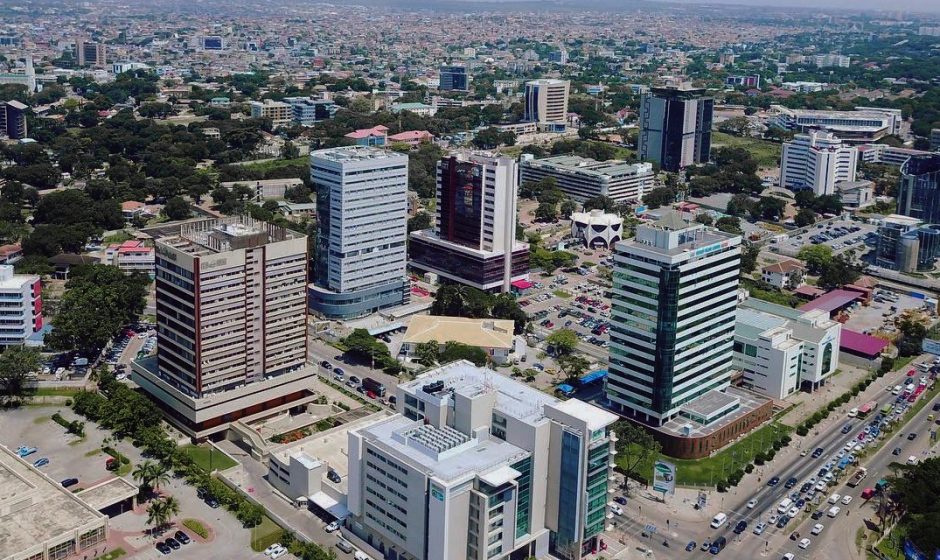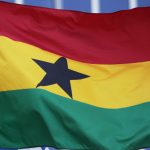After George Floyd’s murder, some Black Americans said they’d “go where the system is different”. Ghana’s 2019 “Year of Return” drew about 1,500 Black American migrants, and its government even promotes African-American citizenship as a “refuge from racial discrimination”. But how do the two countries really compare? Let’s break down crime rates, racism, economic factors, and everyday safety from a Black American’s viewpoint.
Crime Rates: USA vs Ghana
Ghana’s communities often center around open-air gathering places (above, a neighborhood soccer field) rather than high-security zones in more dangerous cities. In fact, serious crime is statistically much lower in Ghana. Ghana’s homicide rate is about 1.8 per 100,000 people, far below the U.S. rate of 5.8 per 100,000. By contrast, the U.S. has roughly 364 violent crimes per 100k residents (2023), and 1,917 property crimes per 100k. Ghana has no recent official tally of all crimes, but surveys and reports suggest violent crime is uncommon and property crime is moderate. In summary: Ghana is generally safer by major crime statistics.
- Homicide: U.S. ~5.8 per 100k vs Ghana ~1.8 per 100k.
- Violent crime: U.S. ~364 incidents/100k (2023); Ghana’s is far lower (no major crises reported).
- Property crime: U.S. ~1,917 per 100k (2023); Ghana’s is lower, with theft/vandalism rated “moderate” by local surveys.
- Perceived safety: In Numbeo’s survey of residents, a higher percentage feel safe walking alone by day in Ghana (about 78%) than in the U.S. (around 71%) (nighttime safety ratings are similar in both countries).
In practice, Black Americans moving to Ghana say they rarely encounter violent crime in day-to-day life, whereas in the U.S. fears of shootings or armed robberies in some neighborhoods are common.
Racism and Institutional Discrimination
- USA: The U.S. has well-documented systemic racism. For example, African Americans are incarcerated at over 5 times the rate of whites, despite making up only 13% of the population. Surveys and reports note widespread bias: a UN human rights report found people of African descent in the U.S. still face racism, xenophobia and excessive police force. In everyday life, Black Americans report discrimination in policing, housing, schools, and jobs. For instance, median Black household wealth in the U.S. is only about $27,000, versus $250,000 for whites, reflecting long-term economic bias.
- Ghana: As a majority-Black nation, Ghana has no history of anti-Black bias in its institutions. Black American migrants generally avoid the color-based discrimination they knew in the U.S. Ghana’s government actively courts the African diaspora, giving special visas and even fast-tracking citizenship for Americans. One report notes that Ghanaian officials call Ghanaian citizenship “a refuge from the racial discrimination and dangers” experienced by Black Americans. In short, there are no Jim Crow laws or white supremacist structures in Ghana.
However, some Black expats do note a different kind of perception issue. A journalist reported that rural Ghanaians sometimes see wealthy Black newcomers as “outsiders” or “the whites,” due to class and cultural differences. There are occasional stories of minor xenophobia (often motivated by money or misunderstanding, not skin color). But generally, Ghanaian racism is not about skin color against Black people, but about status or nationality. In practice, Black Americans in Ghana tend to be treated as guests or even honored visitors rather than as an oppressed group.
Economics and Discrimination
- USA: Economic discrimination is stark in America. Hiring and wage gaps persist for Black workers, mortgages are harder to get, and the racial wealth gap is huge. Redlining, credit bias, and unequal school funding are examples. Black Americans often must earn far more just to achieve the same financial stability as white peers.
- Ghana: Black Americans avoid U.S.-style racial barriers, but face a different reality: Ghana’s economy is smaller and average incomes are low. There is no race tax, but relocating Americans must adapt to local business customs and lower wages. For example, one expat entrepreneur reports paying twice to secure a land purchase due to local family disputes – something that would be unheard-of in U.S. real estate practice. On the positive side, Ghana offers opportunities: one American in Ghana founded an export business selling Ghanaian goods back to the U.S., and many co-op with Ghanaian partners. The government even sets aside land for diaspora development and encourages foreign investment. Overall, Black Americans trading U.S. race-based economic hurdles for Ghana’s developing economy may experience both relief and new challenges.
Social Acceptance and Culture
Many Black Americans feel an immediate cultural fit in Ghana. They often say it’s refreshing not to “stand out” by skin color. As one migrant put it: “When you arrive in Ghana and get off the plane, and you don’t see any white people… you tell yourself, ‘This is where I should be, a place where the people look like me.’”. Ghanaian culture celebrates African heritage and natural Black beauty; a U.S. woman noted she now expects her child to feel proud of African identity in Ghana. Community and family are strong in Ghana, and many Black Americans report being embraced by neighbors and coworkers.
However, immigrants must adapt: language (English and local languages), accents, and customs differ. Some Black expats mention jokes about Western habits or needing to navigate relatives’ expectations. But on balance, nearly every source agrees Ghana is welcoming. The atmosphere is often described as relaxed and pan-African. One Black American activist said Ghana “felt like home,” in contrast to the constant reminder of race back in the U.S..
Safety and Daily Life
Politically, Ghana is considered stable and democratic – much more so than many other West African nations. There have been no recent civil conflicts or terrorism incidents, and crime is mostly petty. Travelers and expats often say Ghana is politely safe: robberies can happen (especially in crowded markets), but armed gang violence is rare. By contrast, many Americans worry about mass shootings or police encounters.
In community life, Ghana’s lower crime means children playing outside (see image above) or people walking at night is common. Survey data support this: nearly 78% of people in Ghana feel safe walking alone by day (versus ~71% in the U.S.). Ghanaian police do patrol major cities, but racial profiling of Black people does not occur – police won’t stop you for your skin color. A common sentiment is that in Ghana one’s biggest safety concerns might be nonracial: traffic accidents (roads can be chaotic), infrastructure (occasional power outages), or scams targeting tourists. But fears like police brutality or hate crimes (all-too-common triggers for Black Americans in the U.S.) are essentially absent.
Key Takeaways: Crime statistics show Ghana is generally safer (especially violent crime) than the U.S.. Black Americans in the U.S. face deep systemic racism (police violence, incarceration, wealth gap), whereas in Ghana they are the racial majority and rarely face color-based bias. Many expats highlight Ghana’s welcoming culture and sense of belonging. The trade-offs include adjusting to a lower-income environment and different social norms, but many feel the respite from U.S. discrimination is worth it.
Sources: Statistics and quotes are drawn from international reports and first-person accounts.
- NPR, “African diaspora returning home as outsiders in a coastal town in Ghana” (transcript of Up First, July 2023).
- The World (PRX), “‘This is where I should be’: 1,500 Black Americans make Ghana their new home” (Sept. 2022).
- USAFacts, “What is the crime rate in the US?” (2024 FBI crime data).
- Numbeo, “Crime rate comparison United States vs Ghana” (2025 survey data).
- Wikipedia, “List of countries by intentional homicide rate” (UNODC 2022–2023 data).
- Black Enterprise, “These Black Celebs Are Now Ghanaian Citizens…” (Jan. 2025).
- Pew Research Center, “Wealth gaps across racial and ethnic groups” (Dec. 2023).
- NAACP, “Criminal Justice Fact Sheet” (current racial incarceration statistics).



